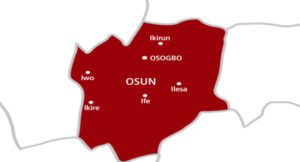


Student Loan Scheme: Now let the educational revolution begin!
By Dada Olusegun
On June 12, 2023, President Tinubu signed the Access to Higher Education Act, 2023, into law to enable indigent students to access interest-free loans for their educational pursuits in any public Nigerian tertiary institution. The Act, also known as the Students Loan Law, equally established the Nigerian Education Loan Fund, which is expected to handle all loan requests, grants, disbursement, and recovery.
President Bola Ahmed Tinubu, on page 44 of his Renewed Hope manifesto, clearly stated that his administration will institute a students loan program following a similar model established by the Kaduna State government in 2018.
In fulfilment of that promise, a few days after the assumption of office, President Tinubu signed the Students Loan Bill sponsored by then House Speaker, Femi Gbajabiamila into law.
The Access to Higher Education Act provided for the establishment of the Nigerian Education Loan Fund (NELFUND) to be domiciled in the Central Bank of Nigeria and administered through an 11-man Special Steering Committee chaired by the CBN Governor. This special committee comprising representatives from FIRS, Federal Ministry of Education, NUC, and other critical stakeholders has been constituted since last year and held their inaugural meeting on 19th February 2023.
Why the Students Loan Scheme is a forward leap
The student loan scheme is a game-changer and extremely important to Nigerian students, as it helps to make tertiary education in public institutions more accessible to those who come from very poor backgrounds or who are unable to finance their tertiary education. The scheme offers loans to students to cover the cost of tuition and other schooling expenses. According to the Executive Secretary of the Nigerian Education Loan Fund, Akintude Sawyerr, students can access up to five hundred thousand (N500,000) from NELFUND annually for tuition fees and other expenses.
This potentially makes it a N2 million financial package for a four-year undergraduate course. This is unprecedented in the history of education in Nigeria. With this student loan programme, no student in a public tertiary institution will ever be denied access to education or prevented from sitting for exams on account of the inability to pay school fees. This means no unnecessary carryover due to the inability to sit for exams. A four-year course will be a four-year course. President Tinubu emphatically made this much clear on various occasions.
There are also tweaks to the scope of the loan program that would allow beneficiaries to apply part of the loan to take care of other expenses such as textbooks, accommodation, and feeding. The President, last January, equally directed that the loan programme be expanded to allow extending of interest-free loans to Nigerian students interested in skill-development programmes.
This directive by Mr. President shows how determined he is to develop the human capacity of all young Nigerians and not necessarily just those pursuing tertiary education. President Bola Tinubu knows how important it is for the scheme to accommodate those who may not want to pursue university education. He noted that skill acquisition is as important as obtaining undergraduate and graduate academic qualifications.
By supporting thousands of young people to pay for skill acquisition training, the Student Loan scheme is building an army of skilled workforce that can easily become self-employed and increase our nation’s productive base. The knock-on effect of this on the economy is massive!
Nigeria’s version of Student Loan Scheme is unique
The student loan scheme that is set to kick off soon is unique and different from the students’ loan scheme in other parts of the world, including the developed countries. To start with, Nigeria’s student loan is interest-free! The sum is static with a range of repayment options that are tied to a borrower’s income. The structure of the loan repayment is very friendly and flexible.
The beneficiaries will get a two-year “grace period” after completing the one-year National Youth Service before they are expected to commence repayment of the loan. The beneficiary begins repayment only when he or she has started earning income. The baseline repayment amount is 10 percent of the monthly net pay of the beneficiary (in the case of an employee) or 10 percent of monthly income or profit of the beneficiary (in the case of a self-employed) until the loan is liquidated provided the 10 percent income of the beneficiary in question does not exceed the total loan disbursed to the beneficiary.
There is also an option of a one-off repayment or an opportunity to indicate the particular percentage model you want for those in private business. Beneficiaries who can not find employment within the grace period of two years will have to periodically report their employment status to the Student Loan board. Of course, there are modalities in place linked to the beneficiary’s BVN to ensure this claim is verifiable.
There is also a possibility of waivers. Beneficiaries of the student loan confirmed to be dead, terminally ill, and incapable of earning a living through work will be granted waivers. This will also be highly ring-fenced and supported by the most credible of proofs to guard against abuse. This student loan scheme is perpetual in nature, which means there is no termination date for the scheme. Funding sources have been made available in the Establishment Act with the Education Tax Fund collected by the FIRS being the most prominent source of funding.
The student loan scheme will certainly help to increase the number of Nigerians who are able to attend and graduate from public tertiary institutions or skill/vocational training institutions. This will also eventually help in improving the quality of education and ultimately increasing the employability of our fresh graduates. There are no negatives that one can associate with the student loan scheme.
This is one programme with the capacity to unlock the enormous possibilities locked in our population before now due to the absence of universal access to quality tertiary education and skills development. This is a forward leap for our nation and a Renewed Hope promise kept by Mr. President.
History will be kind to Chief of Staff and former Speaker of the House of Representatives, RT Hon Femi Gbajabiamila, for sponsoring this all-important bill while in the House of Representatives.
It will be kinder to President Tinubu for sticking to a vision he has had long before now.
Now, let the educational revolution begin!



